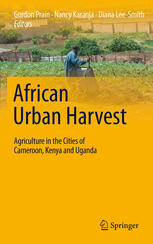Agriculture in the rural-urban continuum: a CGIAR research perspective
Thirsty and hungry cities are posing significant challenges for the urban-rural interface ranging from food security to inter-sectoral water allocation. Not only is the supply of resources to urban centres a growing challenge in low-income countries, but even more is the urban return flow, as investments in waste management and sanitation, ie the ‘ultimate food waste’, are not able to keep pace with population growth. And where polluted water is used in irrigation to feed the cities, food safety is becoming a crucial component of food security.





